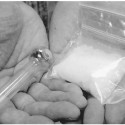Genetics: Why Some Drinkers Feel Effects Of Alcohol Strongly, And Why Some Are Prone To Alcohol Abuse
Researchers at the UCSF Ernest Gallo Clinic and Research Center have identified a region on the human genome that appears to determine how strongly drinkers feel the effects of alcohol and thus how prone they are to alcohol abuse.
The researchers found that a DNA sequence variation, known as a single nucleotide polymorphism (SNP), on chromosome 15 is significantly associated with the level of response to alcohol and could signal the genetic factors that affect alcohol abuse, according to findings published in the Dec. 8 online edition of the “Proceedings of the National Academy of Sciences.”
The research investigated two sentinel SNP markers – RS1051730 and RS8034191 –that previously had been associated with nicotine dependence and lung cancer and found a strong association with the first marker, according to Raymond L. White, PhD, director of the Gallo Center and senior author on the paper.
“We know that the level of response to alcohol is heritable and think there are genetic factors behind 40 to 60 percent of alcohol dependence, but until now, the chromosomal locations of these factors have not been clear for the most common forms of alcohol use disorders,” White said. “By understanding which portion of our genetic makeup influences our response to alcohol, we can begin to understand what type of treatments might be most successful in helping reduce alcohol use disorders.”
Previous studies have indicated shared genetic factors behind alcohol and nicotine dependence and also have connected chromosome 15 with alcohol use disorders, which made those sites a logical place to start searching for a genetic basis for alcohol response, White said.
The research determined the genetic makeup, or genotype, of 313 Caucasian siblings from the San Diego Sibling Pair Project and analyzed the association of the two sentinel SNPs associated with nicotine dependence, with three measures of the level of response. A low level of response reflects an ability to consume greater amounts of alcohol before feeling the effects. Additional genotyping for verification and expansion of the study resulted in a total of 367 genotyped white siblings. The findings confirmed that the level of response to alcohol has a genetic component, according to the paper.
This level of response to alcohol intake – including physical responses such as body swaying and subjective feelings as measured on the Subjective High Assessment Scale – serves as an “intermediate phenotype” that is highly reproducible in individuals and can be a means of investigating the genetic factors that affect alcohol abuse, the researchers said.
“In many complex psychiatric and medical conditions, such as substance abuse, there are multiple genetic and environmental components involved, making it very difficult to firmly identify the genetic component,” White said. “In those situations, intermediate phenotypes are often more closely correlated with the underlying biology than any other factor and are invaluable research aids.”
The most significant association in this study was found on the chromosome 15 SNP labeled RS1051730, with the response being body sway resulting from a 3-drink challenge at 10:00 am, researchers said.
Several other genes surrounding this marker could be responsible for the variation in level of response. However, the authors did say that they suspect that the nicotinic receptor gene CHRNA5 may be responsible.
Co-authors on the paper were Geoff Joslyn, Gerry Brush and Margaret Robertson, from the Gallo Center; and Tom L. Smith, Jelger Kalmijn and Marc Schuckit, from the University of California San Diego Department of Psychiatry and the Veterans Affairs San Diego Healthcare System.
Support for the research came from funds provided by the State of California for UCSF medical research on alcohol and substance abuse. It was also sponsored by the Department of the Army, through the US Army Medical Research Acquisition Activity office. The research does not necessarily reflect the position or the policy of the government, nor should any official endorsement of the research be inferred.
source: Science Daily
